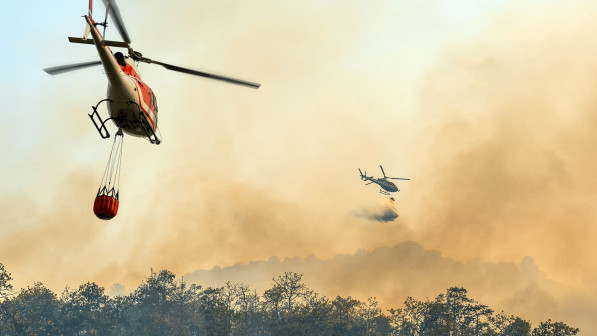If you’re a US aerial firefighting operator, you need to be aware of the changes recently proposed to the aerial firefighting support service contracts.
The United States Department of Agriculture (USDA) and the United States Forest Service (USFS) have drafted contract changes in Solicitation 1202SA21R9008 which determine what requirements aircraft operators will need to meet if they are to engage in aerial firefighting.
Read on to learn what these changes are and what you need to know…
The most significant changes to be aware of include the requirement for additional telemetry units (ATUs) and flight data monitoring systems for event reporting. (Found in section B.7 of the Solicitation Draft).
These requirements are already in place in Australia and are now being set all across the world, with the emphasis on measuring safety, accountability and efficiency.
- So what is an ATU?
- What About Flight data Monitoring Systems?
- Why are ATUs Becoming a Requirement?
- How can I Become Compliant?
- When do I need to be Ready?
So, what is an ATU?
ATU’s are innovative devices that integrate with your aircraft and allow operators to capture valuable firebombing data such as:
- Tank/Bucket Fill
- Drop-start and drop-stop
- Associated GPS positioning
- Volumes for each drop
- Retardent (suppressant) type used
Ok, and what about flight data monitoring systems?
Flight data monitoring systems capture flight information to be shared or analysed for decision-making. It captures data such as:
- Real-time GPS position reporting and tracking
- Engine start/stop
- Takeoffs/landings
At TracPlus we’ve worked hard to develop a system that provides operators with the ability to overlay all of this information onto digital geographic maps within our platform - in real-time. This allows organisations to view all of their assets in one single view of the truth (common operating picture), while also gaining the ability to share that information with external parties.
Why are ATUs becoming a requirement?
Due to the fact that fire seasons are becoming longer and more destructive, governments are realising the need to track the efficiency of firefighting responses. The data that ATUs capture allow that efficiency to be tracked, shared, and analysed.
How can I become compliant?
The USFS regulations require firefighting aircraft to collect ATU data and send it via an AFF (Aerial Flight Following) device. Luckily, there are certain ATU devices like the AFDAU-T1 and Trotter DataVault that can easily integrate with AFF systems and enable operators to seamlessly send all the required data automatically.
The USDA also requires operators to perform calibration checks (seven days before aircraft inspection) to ensure the ATU is reliable and sending accurate data. For this reason, it’s absolutely vital that operators choose a trusted and reliable ATU provider to purchase from - otherwise they risk facing mission-critical issues and the grounding of their aircraft.
When do I need to be ready?
Although these proposed changes have faced some timing delays, they are certainly going to be finalised soon, with predictions suggesting a July-Sep 2022 timeframe.
The organisations and operators who want to be prepared are taking the time now to be fully ready when the changes are officialized, and they are making considerable efforts to install the correct and compliant ATU devices for their operations.
To ensure you’re compliant, you need to be purchasing an ATU from an approved vendor such as TracPlus, who can set you up with an all-in-one solution covering ATU and AFF compliancy.
If you’re interested in getting this sorted sooner rather than later, get in touch with our team today.
We’ll put in the work to make sure you’re completely ready and prepared.
